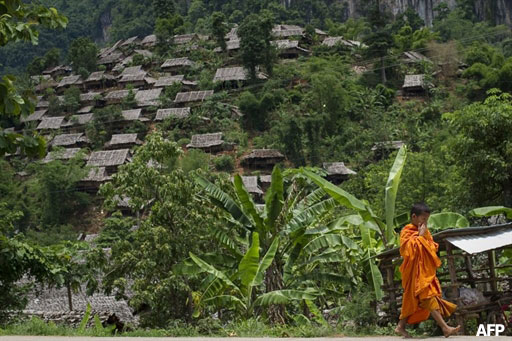New Delhi (Mizzima) – The chief of mission of the United Nations High Commissioner for Refugees (UNHCR) of India said that all relevant factors and changes in conditions in a country of origin are important but they must be seen in an overall context when talking about sending refugees back home.

“The UNHCR follows very closely the political situations in all countries of origin of refugees, and we will continue to do so,” said Montserrat Feixas Vihe.
He told Mizzima that the UNHCR welcomed the Burmese president’s comments on Wednesday inviting Burmese living abroad to return home to help the country develop.
According to UNHCR reports, there are a total of 11,500 Burmese who are refugees or applying for refugee status in New Delhi.
“The UNHCR hopes that being a refugee is a temporary condition. Therefore, the UNHCR always welcomes positive development in countries of origin so that eventually refugees are able to go back home,” Vihe said.
He said the UNHCR considers voluntary repatriation as the best durable solution for refugees.
“If the situation in Burma evolves in such a way that makes return possible and the refugees are willing to return, the UNHCR will assist them to voluntarily repatriate as much as possible,” he said.
After President Thein Sein’s comments, Burmese refugees in camps along the Thai-Burmese border said they are worried that the Thai government will close the refugee camps, according to refugee sources.
Thein Sein said in a meeting with officials from economic and social organizations, “We will make a review to make sure that Burmese citizens living abroad can return home if they have not committed any crime, and if a Burmese citizen in a foreign country who committed a crime applies to return home, we will show our benevolent attitude in dealing their case.”
One refugee said, “If the UNHCR repatriates us because of the government’s offer, we will live in border areas. It is impossible that we can go back.”
A Chin refugee in New Delhi told Mizzima. “If the UNHCR forcibly repatriates us, I will join up with an armed group in the border area. I cannot be arrested in Burma.”
Stevin Kap Tlutng, the chairman of the Chin Refugee Committee based in New Delhi, said, “I don’t want them [UNHCR of India] to repatriate us, but I can’t say that it won’t happen.”
Burmese refugees are also concerned that if the UNHCR trusts the Burmese government’s offer, it may stop accepting new refugees, and it could stop or delay sending Burmese refugees to resettlement countries.
“We’re worried that Thailand will close the refugee camps. All the refugees here are worried,” Myo Thant, a refugee in the Umpiem Mai refugee Camp in Thailand, told Mizzima.
There are nine Burmese refugee camps along the Thai-Burmese border: Baan Mai Nai Soi, Baan Mae Surin, Mae La Oon, Mae Ra Ma Luang, Mae La, Nu po, Umpiem, Baan Don Yang and Tham Hin; and one Shan refugee camp, Wieng Heng, in Chiang Mai District in northern Thailand.
In Mae La, the largest refugee camp, the Thailand- Burma Border Consortium provides relief to more than 50,000 refugees, and another 16,000 refugees at the Umpiem camp.
Burmese refugee organizations said that if the government really wants to make a positive change, it should first agree to a cease-fire with ethnic armed groups and release all political prisoners before inviting Burmese citizens abroad to return home.
Tha Kell, the vice chairman of the Mae La refugee camp, said, “The conditions in Burma have not improved. Inside Burma, revolutionists and other groups haven’t gotten what they want. Agreements have not been reached. The government’s problems with ethnic groups such as the Shan, Kachin and the KNU [Karen National Union] are not resolved.”
According to the UNHCR Web site, there are 62,015 internally displaced persons affected by the civil war in Burma, 415,670 Burmese refugees and 22,270 asylum seekers from Burma.



